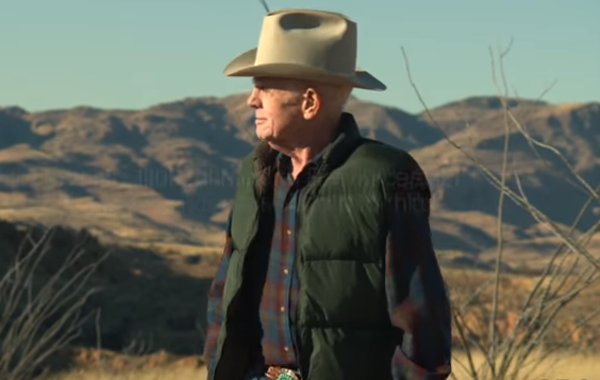Nine rules for exploration success from the world's best mine finder


Dave Lowell walks his ranch south of Tucson. Image from YouTube/CEO.ca.
Simply put, you just have to be out of the office, in the field and drilling holes if you want to be making discoveries says legendary explorationist and geologist, Dave Lowell, in his book Intrepid Explorer - The Autobiography of the World's Best Mine Finder.
Lowell-this past century's most successful mining explorationist having discovered an unprecedented seventeen ore bodies including the world's largest copper mine-distilled his years of wisdom into nine rules on making discoveries. Reprint of the nine rules was generously permitted by Sentinel Peak, The University of Arizona Press.
I have a number of exploration rules that I follow:
Ore is rock which can mined at a profit. Low grade is sometimes mineable, and high grade is sometimes not.Mines are found in the field, not the officeMines are now almost always found by drilling holes, so if no part of the budget is spent on drilling there is almost no chance of success. (Pierina was the rare exception.)Exploration is a cost/benefit business. Expensive high-precision core drilling is often used when low-precision low-cost rotary drilling would suffice. In the Atacama Project we spent $3 million on wide-spaced rotary drill holes. If we had used core holes our budget would have run out when less that half the holes were drilled including those that found the Escondida and Zaldivar orebodies. The same logic applies to all other exploration costs.High-tech devices and geophysical surveys are very rarely of value in mine discovery. There should be an almost metaphysical communication between the rocks and the successful explorationist in which the rocks talk to the explorationist. If he turns part of this job of geological mapping over to a high-tech gadget, he may look good to uniformed management, but he is less likely to find a mine.It is important to have a good understanding of the target he is looking for, including understanding some mining engineering, metallurgy, mine finance, and mineral economics. He is not looking for a scientific curiosity; he is looking for a mass of rock which can be made into a mine. I believe my mining engineering and mine production work has been very important in my exploration success.Mineral exploration, like investing new blockbuster drugs, has a very low probability of success. Only one out of three hundred to fine hundred attractive targets become a mine. You have to accept the fact that you usually be wrong. I'd guess that only one out of thirty well-trained exploration geologists ever actually find a mine. However, if an explorer has found one mine, statistically he is likely find others.Finding mines is a high-risk business. In addtion to the geological risk are the political risk, the metal price risk, the mine financing risk and the timid, incompetent management risk. Success is the summation of a list of well-evaluated risks.My last facto, which you don't find in training manuals or classroom or mining articles, is the freedom to plan you own exploration project without interference of the company rules or tradition or interference by supervisors who are as good as prospector as you.CEO.ca profiled Dave Lowell at his ranch, just south of Tucson: